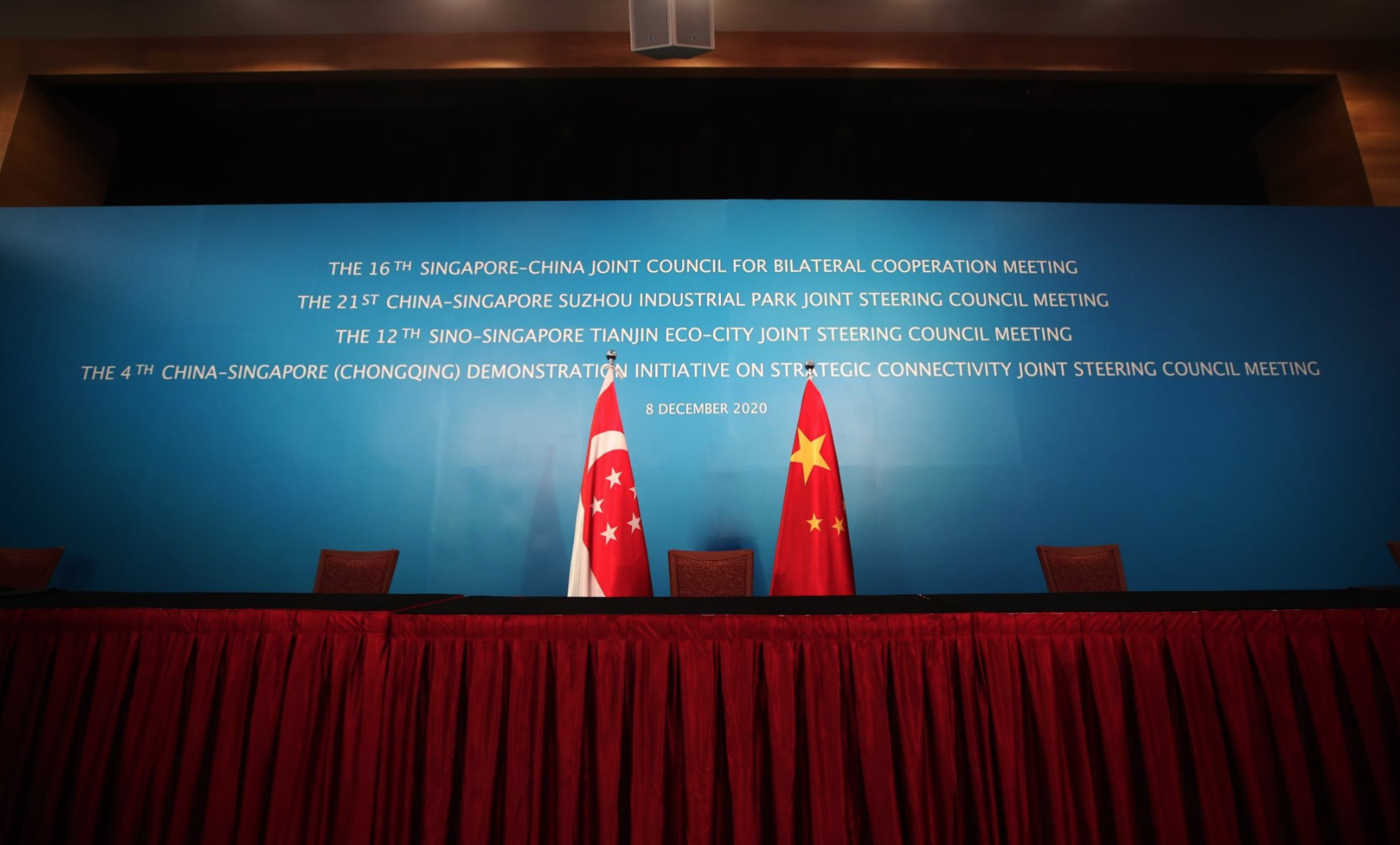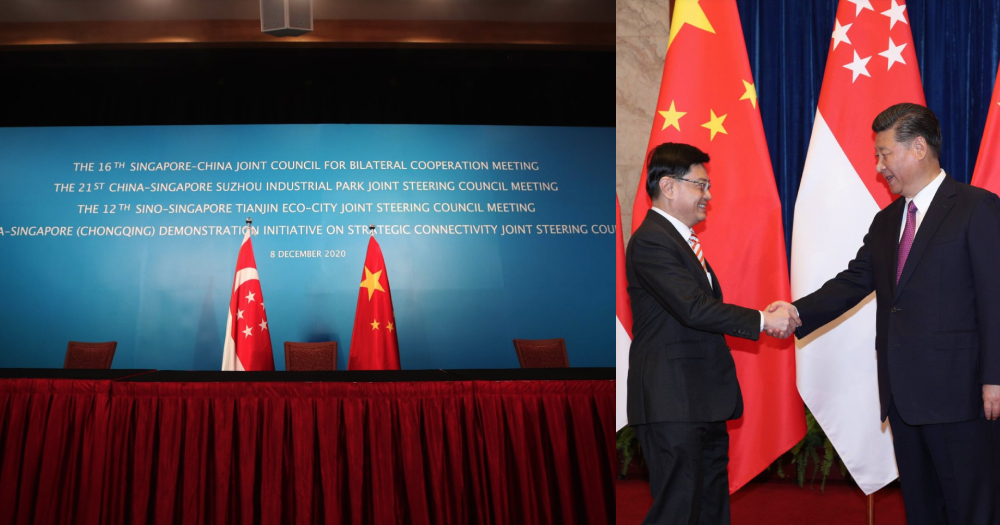The Covid-19 pandemic has brought Singapore and China closer together as both countries exchanged experiences and supported each other with medical supplies, Deputy Prime Minister Heng Swee Keat said in an interview with Xinhua.
Public health response to be new item on agenda for cooperation
Despite the ongoing pandemic, both countries, which mark their 30th anniversary of the establishment of diplomatic relations this year, have kept up the "positive momentum" in their exchanges and cooperation, Heng said.
In this year alone, Heng has spoken to Chinese Vice Premier Han Zheng twice.
In addition, Singapore hosted top diplomat Yang Jiechi in August and Foreign Minister Wang Yi in October.
In fact, bilateral relations between both countries are so strong that Heng used the Chinese phrase "患难见真情" to describe it.
The phrase roughly translates to "a friend in need is a friend indeed".
In light of the pandemic, Heng also said both he and Han have agreed to include public health cooperation as a new item for this year's 16th Joint Council for Bilateral Cooperation (JCBC) meeting.
JCBC is the top body that oversees bilateral relations between Singapore and China, and Heng has taken over from Senior Minister Teo Chee Hean as co-chair last year.Both countries will look at ways to enhance healthcare cooperation, including pandemic preparedness and response, as well as explore collaboration on vaccine development, production and distribution, Heng elaborated.
 Image via MCI/Fyrol
Image via MCI/Fyrol
Other items on the agenda include rejuvenating both countries' economies by enhancing connectivity between them, and discussing cooperation on China's regional development strategies, such as the Beijing-Tianjin-Hebei region in the north, the Yangtze River Delta along the eastern coast, and the Guangdong-Hong Kong-Macau Greater Bay Area (GBA) in the south.
Singapore and China are also commemorating key milestones such as the 5th anniversary of the China-Singapore (Chongqing) Demonstration Initiative on Strategic Connectivity (CCI), which is a key priority demonstration project for the Belt and Road Initiative (BRI), Heng added.
Singapore supporting China on BRI
In addition, Heng said Singapore's cooperation with China goes beyond the Chinese borders.
He said Singapore is "happy to support the BRI by serving as a gateway for investment inflows and financial services for sustainable infrastructure development in Belt and Road countries".
Elaborating further, Heng said Chinese and Singapore banks jointly issued over US$2 billion (S$2.67 billion) in green bonds and loans in Singapore to finance BRI projects last year.
As for financial connectivity, both countries have increasingly greater cross-border trade, financing and investment in each other's markets over the decades.
Singapore is the largest overseas investment destination for China along the BRI, Heng said, adding that Singapore is among the top three offshore RMB centres in the world, which is something that should be built on.
Other common areas of interest that both countries are keen to learn from each other include the ageing population and food security.
For instance, Singapore has shared with China how they run their Central Provident Fund as China undertakes pension reforms. China has also stressed the importance of food security as a foundation of national security, while Singapore aims to produce 30 per cent of its nutritional needs locally by 2030.
China's stability and prosperity bodes well for the region
In response to a question on what Singapore can do to help in the development of China-Asean relations, Heng said "a stable and prosperous China, which is well-integrated into the regional architecture, is good for Singapore, China and Asean".
Asean taking over the European Union and the United States to become China's largest trading partner for the first time in 2020 is testament to the potential of the economic partnership between China and the 10-member regional grouping, Heng said.
He added that the signing of the Regional Comprehensive Economic Partnership (RCEP) agreement -- the world's largest trade deal -- after eight years of negotiations has also deepened regional ties further, and Singapore will work closely with China and other signatories to implement the deal in a timely manner.
Heng further said Singapore welcomes China to join the Comprehensive and Progressive Agreement for Trans-Pacific Partnership (CPTPP).
Singapore is committed to working with China to build a strong and resilient regional architecture
Heng ended the interview by expressing Singapore's firm interest in continuing to partner China in strengthening regional linkages.
He also called for all to look past differences, focus on shared similarities, and continue to engage with other countries in the region so that people's lives will be improved:
"The region we live in may be complex, but it is by embracing diverse cultures and identities that the bonds of our peoples are strengthened.
At first glance, our differences may be apparent. But if we look closely, our region shares a lot of subtle similarities in our cultures, such as in our cuisines and so forth.
We must continue to deepen our understanding of the region amidst the global uncertainty, celebrate diversity, and work together to build better lives for our peoples in Singapore, China and the region."
You can read Heng's entire interview with Xinhua here.
Totally unrelated but follow and listen to our podcast here
Top image via Ministry of Communications and Information & Heng Swee Keat/Facebook
If you like what you read, follow us on Facebook, Instagram, Twitter and Telegram to get the latest updates.
